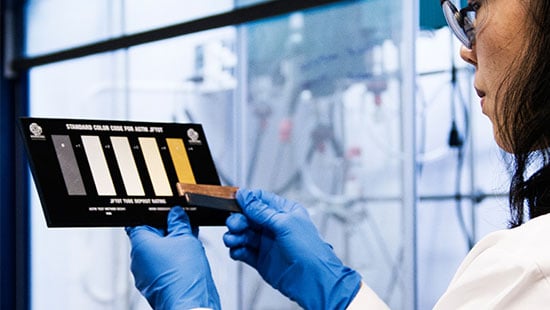Copper can be present in fuel systems in the form of heating coils, cooling coils, brass fittings or bronze parts. Copper is quite resistant to corrosion by water but can be attacked by ammonia and sulfur compounds. Finished fuels usually do not contain ammonia unless the ammonia carries over from refining process operations. Sulfur compounds such as hydrogen sulfide, low molecular weight mercaptans and elemental sulfur are more frequently the cause of copper corrosion problems in fuel systems.
More volatile fuels such as LPG and gasoline are the most susceptible to copper corrosion since the processing conditions for these fuels may leave traces of the corrosive compounds in the fuel. Although copper corrosion can occur in kerosene, diesel fuel and other distillate fuels, the occurrence is less common because the corrosive compounds are usually removed by the higher processing temperatures.
Nalco Water copper corrosion inhibitors provide a chemical film on the copper surface to prevent sulfur-initiated corrosion. Because the copper corrosion ratings of fuels can vary widely, the addition rates of copper corrosion inhibitor can also vary significantly, and additive testing by ASTM D130 is recommended before applying a copper corrosion inhibitor to fuel.



